Pregnancy-Safe Skincare Lines Address Hormonal Changes Without Compromise
flareAI
Quick Listen:
Imagine a woman in the heart of bustling Mumbai, her hand gently cradling the subtle swell of her abdomen as she scrutinizes her reflection, noting the faint lines etching across her skin like whispers of change. Hormonal surges, that relentless tide of pregnancy, have ushered in a new reality: heightened sensitivity, unexpected breakouts, and the ever-looming threat of stretch marks. Yet, amid this vulnerability lies a burgeoning revolution in beauty one that prioritizes unyielding safety without sacrificing the radiant allure women crave. Pregnancy-Safe Skincare Lines Address Hormonal Changes Without Compromise, harnessing time-tested botanicals and rigorous scientific scrutiny to empower expectant mothers worldwide.
Many women feel trapped by makeup that hides flaws but risks irritation and hidden toxins. This daily choice weighs heavily, dimming confidence over time. Liht Organics invites you to embrace beauty differently. With up to 90% USDA-certified organic ingredients, our vegan, cruelty-free products deliver vibrant color and gentle care, letting you glow with confidence, knowing your skin is nurtured, not compromised. Shop Now!
The Surge in Demand for Pregnancy-Safe Skincare
The global beauty industry, long a bastion of innovation, has pivoted decisively toward formulations that safeguard maternal health. Pregnancy-safe skincare eschews notorious culprits retinoids, parabens, phthalates, and hydroquinone opting instead for gentle, efficacious alternatives that support skin's natural resilience. This shift isn't mere trend; it's a response to the profound physiological transformations of pregnancy, where estrogen and progesterone levels can skyrocket, exacerbating conditions like melasma and acne.
Regulatory bodies underscore this imperative with precision. The U.S. Food and Drug Administration categorizes retinoids such as tretinoin as high-risk (C or X), citing absorption concerns that could impact fetal development, while hydroquinone earns a cautious C rating for similar reasons. Echoing these warnings, Australia's Therapeutic Goods Administration permits low-dose botanicals like glycolic acid but bans retinoids outright, ensuring products align with maternal priorities. These frameworks form the bedrock of the organic cosmetics arena, where ethical sourcing intersects with wellness imperatives, fostering trust in an era of informed consumerism.
Market forces amplify this narrative. The global baby and pregnancy skincare products market stood at USD 5.6 billion in 2023, on track to expand to USD 14.7 billion by 2033, propelled by a robust compound annual growth rate of 10.1 percent from 2024 onward. This trajectory reflects heightened parental awareness of dermatological needs during gestation and infancy, from combating dryness and stretch marks to shielding delicate newborn skin from irritants. North America leads with a 2024 valuation of USD 2.1 billion, projected to hit USD 5.2 billion by 2033, buoyed by advanced healthcare infrastructure and stringent safety norms. Meanwhile, the Asia Pacific region, valued at USD 1.0 billion in 2024, emerges as the fastest-growing hub, destined for USD 3.5 billion by 2033, thanks to surging birth rates, urbanization, and prenatal education in nations like India and China.
In hubs like the UAE and Singapore, digitally native millennials and Gen Z propel this momentum, demanding transparency and efficacy in equal measure. What was once a niche corner of clean beauty now commands center stage, embodying empowerment as women reclaim agency over their skincare rituals amid life's most transformative chapter.
Navigating Emerging Trends and Regional Nuances
Innovations in Ingredients and Formulations
Research and development pulses with vitality from India's herbal heartlands to Australia's coastal labs, birthing a new era of ingredient ingenuity. Ayurveda's timeless arsenal turmeric's potent curcumin for quelling inflammation, neem's antimicrobial punch against acne, and rosehip oil's regenerative touch dominates Indian formulations, offering solace for hormone-induced woes without synthetic shadows. These actives, rooted in centuries-old wisdom, now undergo modern validation, proving their mettle in clinical trials that affirm safety for sensitive skin.
Across the Arabian Peninsula, halal-certified innovations blend cultural reverence with cutting-edge care; camel milk-derived soaps, rich in lactic acid and vitamins, deliver profound hydration while adhering to modesty-aligned standards in the UAE and Saudi Arabia. Australia's cosmeceutical vanguard, governed by the Therapeutic Goods Administration, elevates botanicals like lactic acid for non-abrasive exfoliation, ideal for the evolving epidermis of pregnancy. In the U.S., trailblazers such as Belli Skincare and The Honest Company fortify their prenatal portfolios with paraben-free, plant-powered elixirs think shea butter-infused creams that mend barriers without compromise. These evolutions transcend hype; they represent a symphony of necessity and nature, where potency meets prudence.
Insights from Dermatological Research on Hormonal Dynamics
Pregnancy's hormonal ballet is as mesmerizing as it is merciless, orchestrating a cascade of cutaneous challenges. Acne erupts from sebum overdrive, melasma veils cheeks in hyperpigmentation, and barrier fragility invites irritation at every turn. Singapore's National Skin Centre illuminates these phenomena, terming melasma the "mask of pregnancy" fueled by estrogen spikes and solar exposure, affecting up to 70 percent of expectant women. Complementing this, Mayo Clinic dermatologists correlate progesterone's influence with clogged pores, advocating hypoallergenic interventions to recalibrate equilibrium.
Industry responds with dermatologist-vetted masterpieces: pH-neutral serums laced with niacinamide to tame inflammation, hyaluronic acid infusions for boundless hydration, and ceramide complexes to fortify the skin's defensive moat. This fusion of empirical evidence and artisanal craft ensures regimens that not only endure but elevate, transforming potential adversity into avenues of vitality.
Regulatory Landscapes and the Pursuit of Transparency
Deciphering product labels demands a cartographer's eye, yet evolving regulations chart a clearer course. The FDA enforces candid disclosures, emphasizing hazard alerts over shelf-life trivia for vulnerable demographics. Australia's TGA maintains exhaustive inventories of sanctioned actives, while India and the UAE harmonize with international benchmarks bilingual Arabic-English panels in Dubai meticulously outline provenance and perils.
Singapore's vanguard retail employs QR codes for instantaneous ingredient dossiers and AI-powered scanners that unravel complexities on the spot. Such mechanisms aren't luxuries; they forge unbreakable bonds of credibility, bridging the chasm between consumer curiosity and corporate candor in an increasingly globalized marketplace.
Spotlighting Brands and Market Mechanics
Profiles of Pioneering Regional Players
The UAE's sun-baked ingenuity shines through The Camel Soap Factory's glycerin-infused treasures, harvested from desert oases to console expanding skin with unparalleled gentleness. In India, Mamaearth and Forest Essentials masterfully interlace Ayurvedic legacies into contemporary arsenals: Mamaearth's onion oil serums curb postpartum shedding, while Forest Essential's ubtan masques exfoliate with the finesse of ancient rituals, all bereft of toxins.
Australia's Endota Organics curates a nurture collection paraben- and phenoxyethanol-free that elevates spa indulgences to sanctuaries of security. Stateside, Beautycounter's crusade for purity, verified by the Environmental Working Group, greenlights preservatives and emollients tailored for gestation. These entities transcend commerce; they curate narratives of resilience, where each application reaffirms a woman's sovereignty over her silhouette.
The E-Commerce and Retail Renaissance
Digital ecosystems in Singapore and Malaysia teem with precision-tagged panaceas Lazada and Shopee's algorithmic sieves spotlight "pregnancy-safe" sanctums, as Sephora Southeast Asia assembles bespoke bundles for bespoke journeys. In the UAE and Saudi realms, platforms attuned to modesty merge merchandise with influencer illuminations, metamorphosing passive browsing into proactive proficiency. E-commerce's ascent democratizes access, dissolving geographical divides and democratizing discernment in the quest for unadulterated radiance.
This digital dynamism dovetails with broader market swells. The global pregnancy care products market, encompassing skincare staples, reached USD 29.4 billion in 2023 and is slated to ascend to USD 42.3 billion by 2030, charting a 5.4 percent CAGR from 2024. North America's 33.9 percent revenue dominance in 2023, with the U.S. claiming 24.5 percent, underscores a landscape ripe for organic infusions, spurred by maternal health advocacy and policy pivots like the 2024 National Maternal Mental Health Hotline.
Confronting Hurdles in a Fragmented Field
Despite these strides, thorns persist. Labeling dissonances breed bewilderment what passes as pristine in Pasadena may falter under Dubai's discerning gaze. Escalating R&D expenditures for multifaceted certifications halal, organic, dermatologically ratified eclipse emerging artisans, inflating barriers to entry. Knowledge voids persist, with transnational discrepancies ensnaring jet-setters in uncertainty, while logistical labyrinths tether boutique brands to parochial ports, curtailing their cosmopolitan conquests. These frictions demand collective vigilance: harmonized standards, subsidized innovation, and amplified education to weave a more equitable tapestry.
Horizons of Opportunity and Economic Ripples
Yet, the vista brims with promise. India and Singapore's constellation of pregnancy applications and virtual dermatology consultations empower bespoke counsel, catalyzing customized cascades. Artificial intelligence, parsing facial cues for hormonal harmonics, bespoke balms that anticipate needs. Sustainably foraged organics magnetize venture capital, as UAE and Australian wellness odysseys intertwine therapeutic topicals with therapeutic travels. Envision obstetric alliances anointing formulations such endorsements could propel sectors stratospheric.
Broader currents corroborate this ascent: Asia Pacific's projected surge, fueled by demographic booms and infrastructural leaps like China's 18,000-plus medical consortia in 2023, signals untapped reservoirs. Europe's affinity for eco-ethicals, buttressed by initiatives like the 2023 Women's Health Interest Group, augurs affluent expansions. Even the Middle East and Africa, from a modest USD 0.4 billion in 2024, inch toward USD 0.8 billion by 2033, mirroring infrastructural awakenings. These vectors herald not just growth, but a renaissance where commerce converges with compassion.
Envisioning an Era of Enlightened Elegance
Gazing forward, organic pregnancy-safe skincare ascends as the lodestar of conscientious opulence delivering dividends devoid of danger. UAE dermatologists champion mineral veils against melasma's mask, while American savants endorse peptide fortifications for fortified facades, unanimous that vigilance enhances, rather than erodes, éclat. AI augurs will inscribe lucidity into every interaction, from Kolkata kiosks to Canberra counters.
The prognosis pulses with potency in India, the UAE, and Australia, realms where tech-fluent cohorts crave profundity over panache. This paradigm transcends ephemera; it's an ontological overhaul, venerating the dermis that harbors destiny. Ultimately, secure splendor articulates an eternal axiom: luminescence transcends epidermis it's the indomitable fortitude of judicious selections that persist.
Frequently Asked Questions
What ingredients should I avoid in skincare products during pregnancy?
Pregnant women should avoid retinoids (like tretinoin), parabens, phthalates, and hydroquinone in their skincare products. The FDA categorizes retinoids as high-risk due to absorption concerns that could impact fetal development, while hydroquinone earns a cautious rating for similar reasons. Instead, opt for gentle alternatives like niacinamide, hyaluronic acid, and botanical ingredients such as rosehip oil and turmeric that support skin's natural resilience without compromising safety.
How do hormonal changes during pregnancy affect my skin?
Pregnancy hormones, particularly estrogen and progesterone surges, can cause several skin changes including acne from increased sebum production, melasma (hyperpigmentation affecting up to 70% of expectant women), heightened sensitivity, and stretch marks. These hormonal fluctuations also weaken the skin barrier, making it more prone to irritation. Pregnancy-safe skincare with ingredients like ceramides, lactic acid, and niacinamide can help address these concerns while maintaining skin health.
Are organic and natural skincare products safe to use during pregnancy?
Yes, organic and pregnancy-safe skincare products formulated without harmful chemicals are generally safe and effective during pregnancy. Look for products with dermatologist-vetted ingredients like Ayurvedic botanicals (turmeric, neem), plant-based oils, and gentle actives that are pH-neutral and hypoallergenic. Always check that products are free from retinoids, parabens, and phthalates, and consider brands that follow regulatory guidelines from organizations like the FDA, Australia's TGA, or obtain certifications such as USDA organic or halal certification for added assurance.
Disclaimer: The above helpful resources content contains personal opinions and experiences. The information provided is for general knowledge and does not constitute professional advice.
You may also be interested in: Pregnancy-Safe Makeup: What You Need to Know Before You Buy
Many women feel trapped by makeup that hides flaws but risks irritation and hidden toxins. This daily choice weighs heavily, dimming confidence over time. Liht Organics invites you to embrace beauty differently. With up to 90% USDA-certified organic ingredients, our vegan, cruelty-free products deliver vibrant color and gentle care, letting you glow with confidence, knowing your skin is nurtured, not compromised. Shop Now!
Powered by flareAI.co
شاركي
You May Also Like
-

Discovering Self-Love Through Clean Beauty: A Guide to Nurturing Your Inner and Outer Self
In the journey of self-love, every action, thought, and choice we make towards ourselves can be a powerful affirmatio...
-

The Science Behind Organic Makeup and Pregnancy: A Gentle Choice for Moms-to-Be
wp:paragraph Pregnancy is a wonderful and exciting journey that comes with added responsibilities of ensuring the ...
-
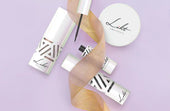
Liht Organics Black Friday: Enhance Your Beauty Routine with Vegan, Organic, and Natural Essentials!
As the holiday season approaches, there’s a sparkle in the air, and we at Liht Organics are thrilled to add a touch o...
-

Organic Makeup That Heals As It Conceals
Liht Organics Empowers Women With Only The Best For Their Beauty NeedsLiht Organics combines the best of both worlds:...
-
![[FEATURE] Liht Organics to debut at TFWA Asia Pacific show](//lihtorganics.com/cdn/shop/articles/1_1.png?v=1759328400&width=170)
[FEATURE] Liht Organics to debut at TFWA Asia Pacific show
‘Organic makeup that’s safe enough to eat’ — Liht Organics to debut at TFWA Asia Pacific show by Hannah Tan | 24 Apri...
-
![[FEATURE] The Singapore-based organic makeup brand is a first-time exhibitor at this year’s TFWA Asia Pacific Exhibition in Singapore in May 2025](//lihtorganics.com/cdn/shop/articles/2_1.png?v=1759328386&width=170)
[FEATURE] The Singapore-based organic makeup brand is a first-time exhibitor at this year’s TFWA Asia Pacific Exhibition in Singapore in May 2025
TFWA Asia Pacific preview: Liht Organics targets expansion in travel retail By DFNI Staff Writer The Singapore-bas...
-
![[FEATURE] Travel Retail Awards 2025 finalists - Best Make-up Product Color-Intense Liquid Lipstick – Liht Organics](//lihtorganics.com/cdn/shop/articles/4_e2f54f0f-fcd1-46e7-9990-fc9d29e35131.png?v=1759328382&width=170)
[FEATURE] Travel Retail Awards 2025 finalists - Best Make-up Product Color-Intense Liquid Lipstick – Liht Organics
Revealed: Travel Retail Awards 2025 finalists By Trbusiness Editor | Wednesday, 23 July 2025 15:21 TRBusiness is th...
-
![[FEATURE] Liht Organics targets expansion in travel retail](//lihtorganics.com/cdn/shop/articles/3_1.png?v=1759328346&width=170)
[FEATURE] Liht Organics targets expansion in travel retail
Organic makeup that’s safe enough to eat: Liht Organics targets expansion in travel retail By Laura Shirk Liht Organ...
-

[FEATURE] Gulf News: TikTok’s strawberry girl makeup trend: How to achieve that rosy glow inspired by Hailey Bieber
Berry, berry, strawberry, love strawberry, like BTS’s J-Hope, the band’s strawberry enthusiast once said. If only we ...
-

[FEATURE] Gulf Business Magazine : Liht-ing it up
Our founder, Nerissa Low was interviewed by Gulf Business, where she discussed her experience launching Liht, an orga...
-

[FEATURE] Daily Vanity: 11 local beauty brands owned by women – you’d be surprised how many of them started in their kitchens!
When we give a shout-out to homegrown beauty businesses, we aren’t just doing it for the sake of supporting local. Th...
-

[FEATURE] Entrepreneur ME : UAE-Based Liht Organics' Nerissa Low On Crafting An Organic Makeup Brand For The Skin-Conscious Consumer
As is the case with the origin stories of so many startups out there, Liht Organics came into being after its founder...
-
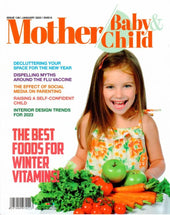
Mother, Baby & Child Editor’s Pick: Liht Organics Lights the Way
Excited to be the Mother, Baby & Child’s ‘Editors pick’ for their choice of Beauty brand.The article outlined the...
-
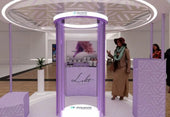
[FEATURE] EmiratesWoman - 8 Fabulous things to do in Dubai this weekend
by SARAH JOSEPHJANUARY 20, 2023Try the UAE’s first virtual reality makeup podium The popular VR-backed makeup exper...
-

Nerissa Low of Liht Organics On The Self-Care Routines & Practices Of Busy Entrepreneurs and Business Leaders
By Maria Angelova, CEO of Rebellious Intl.Date: 4 January, 2023Nerissa Low of Liht Organics On The Self-Care Routines...
-

Liht Organics: Meet the beauty brand that has caught the eye of the Royal Family of Bahrain
By Crystal Lee Digital Editor28 May 2021The world of clean beauty is, ironically, rather murky.That’s because the ter...
-

The latest luxury makeup and skincare drops, including serums, concealers, moisturisers and more
Allisa Noraini21 May, 2021It’s fine to splurge in the name of beauty. This new range of makeup and skincare drops are...
-

These SG Beauty Bosses Are Conquering The World Despite The Pandemic
First Singapore, then the US, China, Germany, Dubai, UK, South Korea, Malaysia, Hong Kong, Thailand, Australia… By...
-

Nerissa Low, Founder at Liht Organics
Written by Callum LaingPosted on December 26, 2020 10 min readNerissa Created Organic Makeup That Actually Improve...
-

Liht Organics – Makeup That Makes You
At Liht Organics, our mission is simple – to provide women (and men) with a safe experience when it comes to beauty s...
-

Why Should We Use Organic Makeup?
We cannot deny that cosmetics is one of our beauty essential item – it enhances our looks and conceals our flaws. Man...
-

Organic makeup and why your skin will love it: Liht Organics founder
By Jolene,July 27, 2020 |7 mins readOrganic make up in Singapore is a trend that is fast-catching on here as we becom...
-

[FEATURE] DC EDIT – Makeup & Confidence: Talking Self-love With Liht Organics’ Founder Nerissa Low
Makeup and confidence — the long, drawn-out fight that many of us have grappled with personally. I’m sure I’m not the...
-

[FEATURE] THE FEMALE CULTURE – I TRIED LIHT ORGANICS AND THIS IS HOW IT WENT
I’m a huge fan of makeup and I love testing out new products so I was pretty excited to get my hands on Liht Organics...
-

[FEATURE] SINGAPORE MOTHERHOOD – The Best Organic and Natural Skincare and Makeup for Pregnant and Breastfeeding Mums in Singapore
Pregnancy is a hormone-volatile period for women. One place where this makes itself seen and felt is on the skin. Som...
-

[FEATURE] AFTER CLINIC HOURS – 21 Back to Beauty Deals in Singapore (2020)
With spas and salons shuttered island wide for two months, I never thought I’d be this desperate for a good old’ Swed...
-

[FEATURE] KUL AL USRA MAGAZINE JUNE 2020
Choosing Pinks & Oranges this summer!Featured: Moisture Burst Lip Glaze in Pink Cupcake.
-
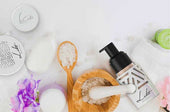
[FEATURE] Award-winning Organic Makeup Brand Liht Organics Gives Back to the Community & Environment During COVID-19
Singapore’s First Organic Makeup Brand with 100% Natural Makeup That Is Safe Enough to Eat Liht Organics promises org...
-

[FEATURE] COSMETICS DESIGN ASIA – COVID-19 ‘WAKE-UP CALL’: SINGAPORE’S LIHT ORGANICS SEES GLOBAL POTENTIAL AMID CLEAN BEAUTY CLAMOUR
Original article at: https://www.cosmeticsdesign-asia.com/Article/2020/06/26/Singapore-s-Liht-Organics-sees-globa...
-

[FEATURE] THE LIFESTYLE COLLECTIVE – BEAUTY SHOULD NEVER BE CRUEL
Date: June 24, 2020Author: Kristen Chen Liht (pronounced as light) Organics is a Singaporean organic makeup brand t...
-

[FEATURE] NÜYOU – 7 ONLINE PLATFORMS TO SHOP FOR CLEAN BEAUTY PRODUCTS
纯净美容(Clean Beauty)的美肤概念,再近几年来越来越受欢迎。随着消费者“爱自己”的美容意识逐步提升,对于用在脸上的所有物品、成分更为关注和讲究。以广义来讲,纯净美容主张使用“干净”成分和无毒配方,让肌肤的可能性损伤减到最小...
-

[FEATURE] COSMOPOLITAN MIDDLE EAST – 3 BENEFITS OF SWITCHING TO ORGANIC BEAUTY PRODUCTS THIS RAMADAN
By Cosmo – May 08, 2020Nerissa Low, founder of Liht Organics, shares the ultimate benefits of going organic this mont...
-

Nerissa Low of Liht Organics: “Seeing Light at the End of the Tunnel; 5 Reasons To Be Hopeful During this Corona Crisis”
Ely Weinschneider, Psy.D.May 8 · 9 min read …It shows us that everyone- whether we are rich or poor, regardless...
-

[FEATURE] AL MARA MAGAZINE APRIL 2020
-

[FEATURE] RetailME April 2020 – Liht Organics Stays Firm On Strengthening GCC Presence
-

[FEATURE] EMARAT AL YOUM NEWSPAPER – 27 MARCH 2020
English Translation:In spring and summer days, women love to have very light makeup in terms of color and texture, ...
-

[ARTICLE] WKND Magazine March 2020 – Know Your Organic Makeup
-

[FEATURE] AVIAMOST DUBAI – March/April 2020
English Translation:Lipstick with organic flowers. Thanks to the rich complex of natural ingredients, the lipstick...
-

[FEATURE] RUSSIAN EMIRATES (MAR/APR ISSUE)
Russian Emirates is a luxury lifestyle and fashion magazine covering information about the UAE, fashion, beauty, j...
-

[FEATURE] – KUL AL USRA MAGAZINE MARCH 2020
GET THE LOOK!
-

[FEATURE] IMAGES Retail ME – Liht Organics Announces GCC-Wide Expansion
Rupkatha Bhowmick Mar 10, 2020 The plan is to reach 75 Liht Organics retail touchpoints by June-July 2020 and touch...
-

[FEATURE] BABY & CHILD SPRING 2020 – NATURAL BEAUTIES
-

[FEATURE] AWQAT DUBAI – Liht Organics: The First Premium Organic Makeup Brand
ENGLISH TRANSLATION:Liht Organics – The First Premium Organic Makeup Brand Liht Organics, a premium organic beauty ...
-

[FEATURE] FRIDAY MAGAZINE – THE RETRO EYELINER LOOK
-

[FEATURE] MOTHER BABY & CHILD – VANITY ESSENTIALS – THE BEAUTY EDIT
-

[FEATURE] Masala! Magazine February/March 2020 Issue – Beauty Debut: Liht Organics
-

[Feature] – TimeOut Singapore – The Best Local Beauty and Skincare Brands In Singapore
For full article, click here.
-

[FEATURE] KUL AL USRA MAGAZINE – LIHT UP YOUR WORLD WITH LIHT ORGANICS
[ENGLISH TRANSLATION]Liht Up Your World With Liht OrganicsThe First Premium Organic Makeup Brand To Debut In The Mi...
-

[FEATURE] SINGAPORE TATLER – 9 Local Beauty Brands You Should Know Of
-

[FEATURE] nüyou August 2019 Issue – 15 Faces To Watch
-

[FEATURE] HONEYCOMBERS – Local Beauty Gurus: Singapore Beauty Brands You Need To Know About
-

[FEATURE] The Wellness Insider – Seeing The Liht With Founder Nerissa Low
-

[FEATURE] 联合早报 (LianHeZaoBao) – Women Entrepreneur Awards 2019 Coverage
-

[FEATURE] THE STRAITS TIMES Life – Clean beauty with a Singapore heart
-

Romantic Organic Makeup Looks for Valentine's Day: Tips, Tricks, and Product Picks
Valentine's Day is the perfect occasion to embrace the beauty of organic makeup. At Liht Organics, we believe in the ...
-
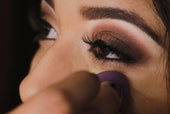
Enhance Your Eyes: A Guide to Eyeliner for Every Eye Shape with Liht Organics
Welcome to the Liht Organics blog, where we believe in celebrating the natural beauty of every eye shape. Today, we'r...
-
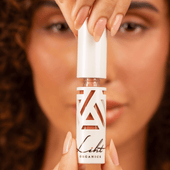
How to do makeup with only lipstick?
At Liht Organics, we believe in the power of clean beauty and the artistry of makeup. Makeup is more than just enhanc...
-

How to Clean Your Makeup Brushes in 6 Simple Steps
Cleaning your makeup brushes may seem like a tedious task, but it's an essential part of your beauty routine. Not onl...
-

Makeup Tips to Help You Look Your Most Flattering on Virtual Meetings!
After more than 2 years of work-from-home arrangement, and possibly hundreds of zoom calls and Google meet virtual me...
-
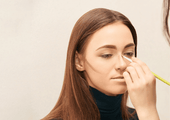
Learn How to Contour with This Simple Guide for Beginners
Want to take your makeup to the next level? Try contouring to achieve a more defined or sculpted look à la the Kardas...
-
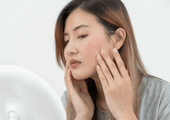
Essential and Easy Makeup Tips for Sensitive Skin
Living with sensitive skin conditions like eczema, psoriasis, and more is already not an easy feat. Throw in makeup t...
-
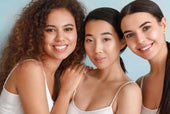
Raising Your Vibration: A Liht Organics Guide for Empowerment This International Women's Day
wp:paragraph As International Women's Day (IWD) approaches, it serves as a powerful reminder of the journey towards s...
-

The Beauty of Going Bare: Why Sleeping with Makeup is a No-No
Have you ever had one of those nights where you're too tired to clean off your makeup? You might believe, "Skipping...
-

Breast Cancer Awareness: Empower Your Beauty with Liht Organics Makeup
During October, we observe Breast Cancer Awareness Month as a way to unite and bring attention to breast cancer whil...
-

The Hidden Dangers of Carmine in Makeup Colorants: Embracing Healthier and Vegan Options
Makeup has become an integral part of our daily routines, allowing us to express our unique beauty. However, as we pr...
-

How can I ensure that my makeup products are organic and won't harm my skin?
When it comes to makeup, it’s important to be mindful of what you’re putting on your skin. With so many products on t...
-

[FEATURE] HONEYCOMBERS – BEST BEAUTY BUYS IN JULY
by Nicole NithiyahWhat’s hot in our beauty hit list: Honest thoughts and top beauty stories we’re swooning over. As w...
-

Liht Organics Introduces Exclusive Gift Sets: Enhance Your Beauty This Festive Season!
As the holiday season approaches and the year draws to a close, Liht Organics is thrilled to present two enchanting g...
-

Get Spooktacular with the Best Halloween Makeup Ideas using Liht Organics' All-Natural, Vegan, and Cruelty-Free Cosmetics!
With Halloween just around the corner, it’s time to let your creativity shine and transform yourself into a spooky,...
-

Celebrating World Animal Day with Liht Organics: Embracing Natural Cruelty-Free Makeup
wp:paragraph As we observe World Animal Day, the team at Liht Organics takes great pride in honoring our pledge to...
-
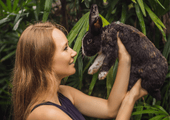
Reasons Why You Should Choose Cruelty-Free Cosmetics Instead!
With increasing exposés unveiling the ugly truth behind animal testing that goes on in the beauty industry, it is lit...
-

Celebrate Singles Day with Makeup That Empowers – 22% Off at LIHT Organics!
This Singles Day, treat yourself to beauty that goes beyond skin-deep. At LIHT Organics, we believe makeup is about s...
-

Preparing for the Cozy Beauty of Autumn: A Preview of Your Fall Look
As we bid farewell to the warm, sun-kissed days of summer, it’s never too early to start dreaming about the enchantin...
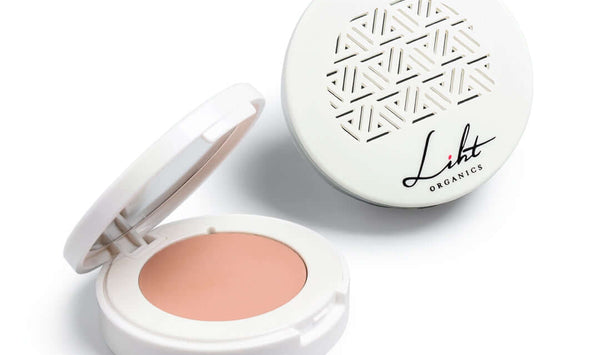
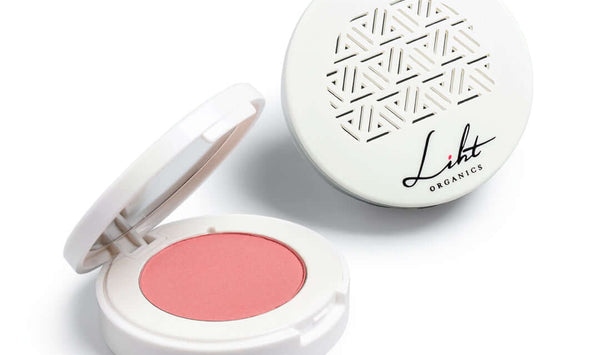
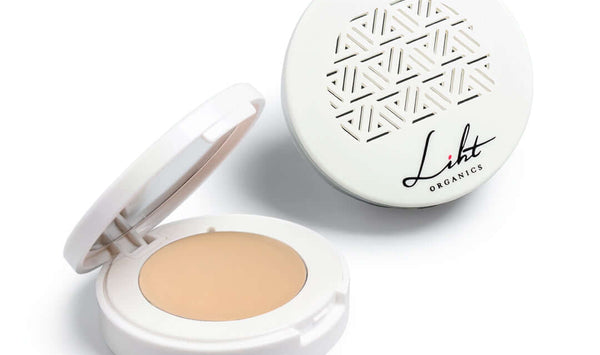
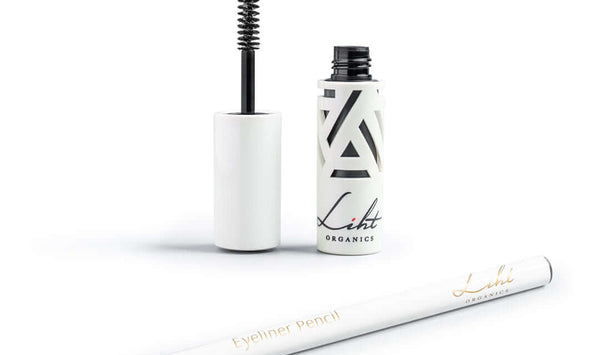
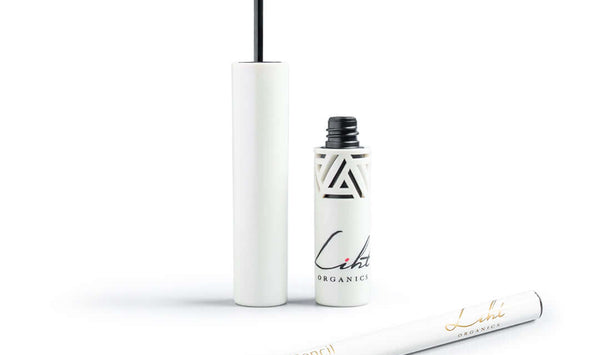
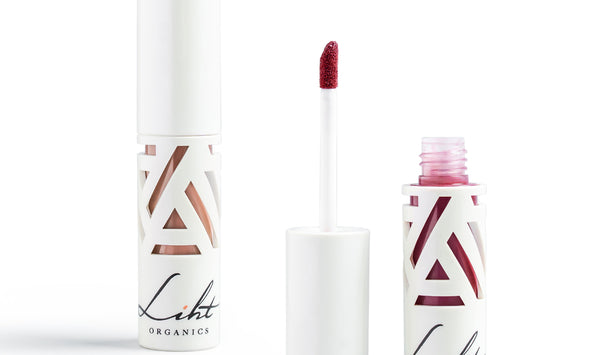
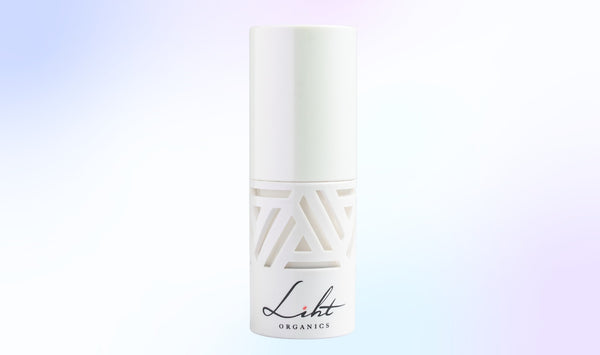

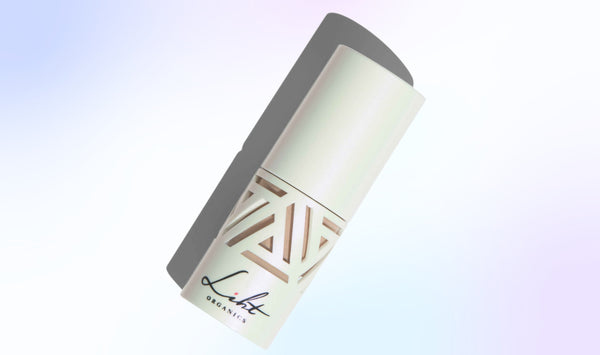
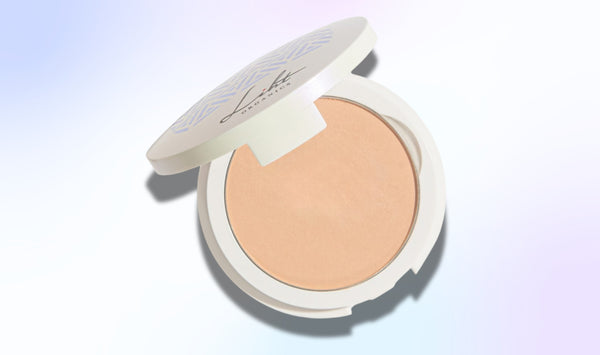
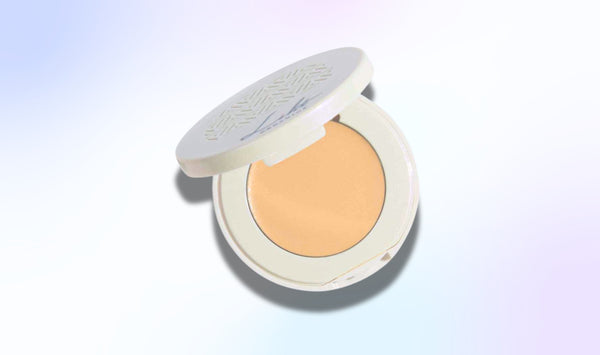
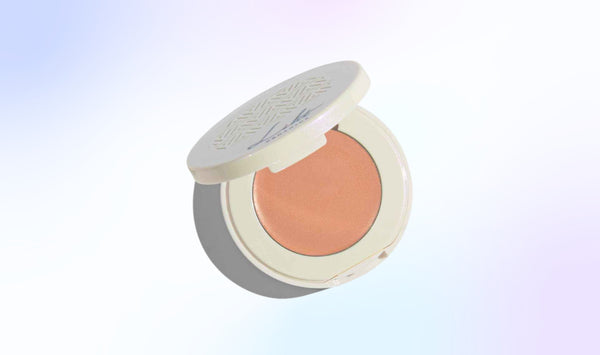
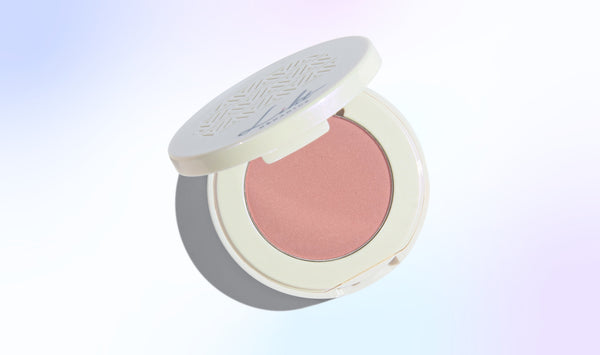
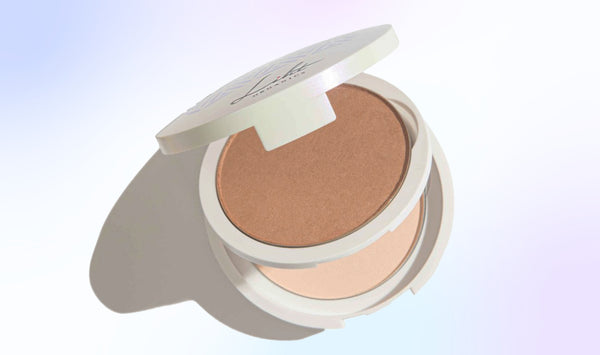
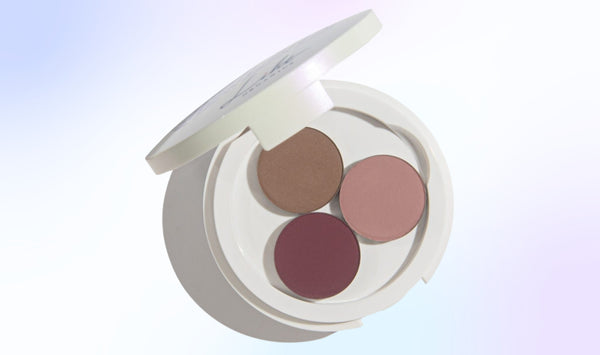
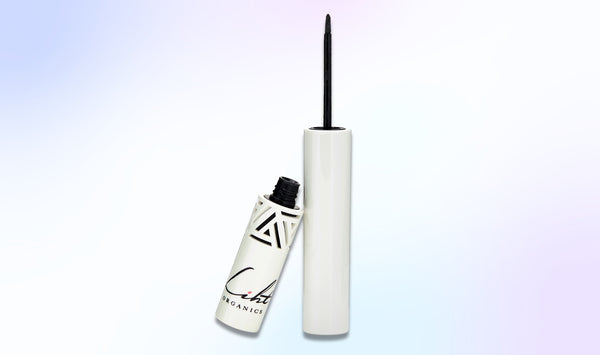
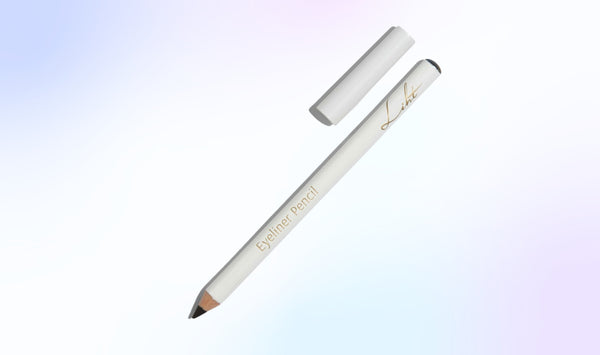
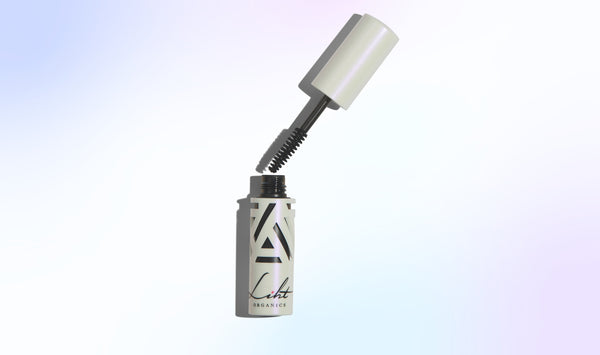
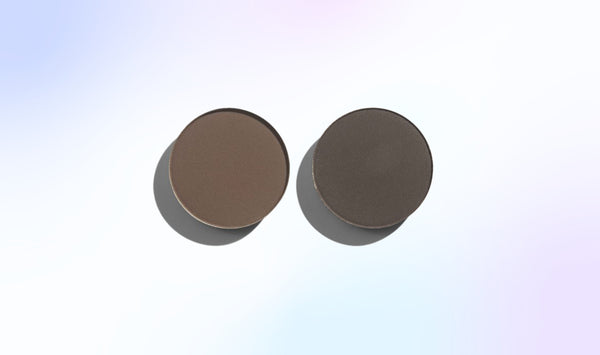
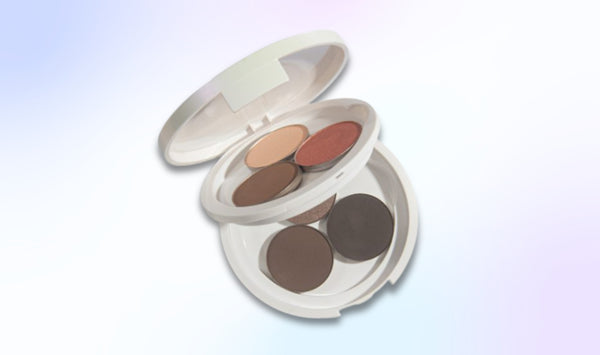
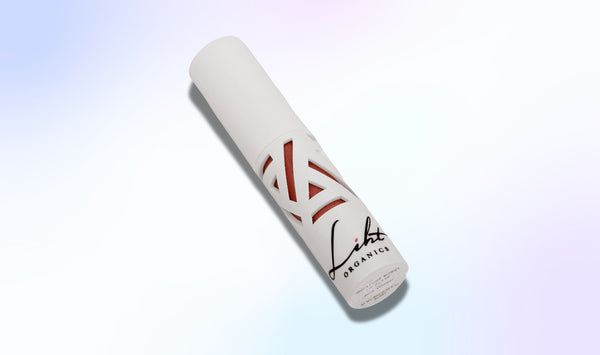
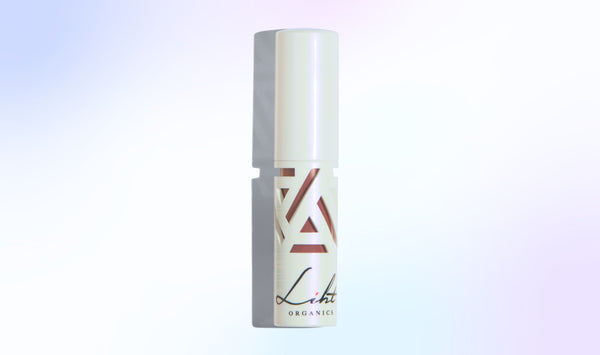
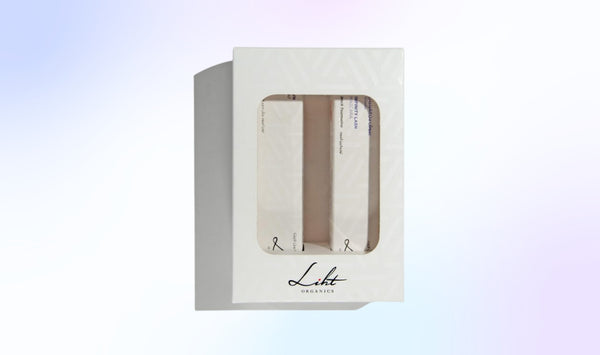
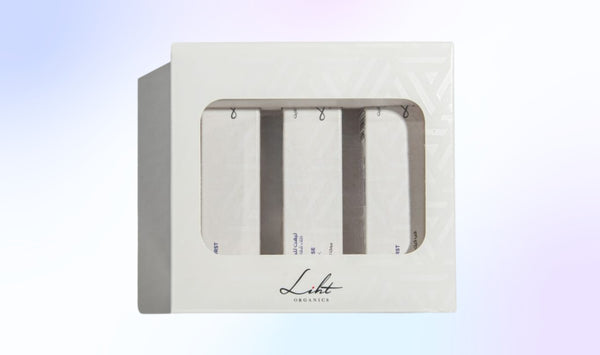


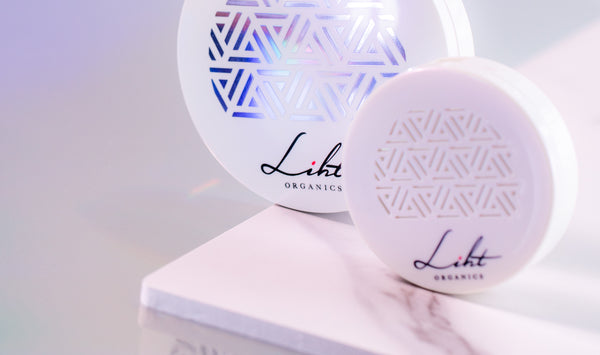
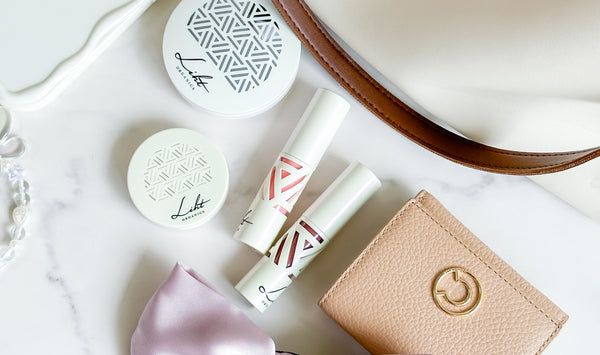
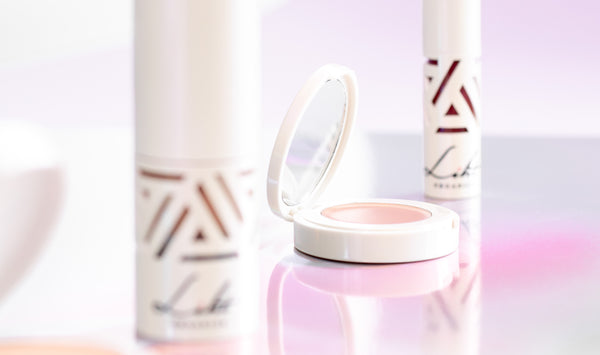




![[FEATURE] Liht Organics to debut at TFWA Asia Pacific show](http://lihtorganics.com/cdn/shop/articles/1_1.png?v=1759328400&width=170)
![[FEATURE] The Singapore-based organic makeup brand is a first-time exhibitor at this year’s TFWA Asia Pacific Exhibition in Singapore in May 2025](http://lihtorganics.com/cdn/shop/articles/2_1.png?v=1759328386&width=170)
![[FEATURE] Travel Retail Awards 2025 finalists - Best Make-up Product Color-Intense Liquid Lipstick – Liht Organics](http://lihtorganics.com/cdn/shop/articles/4_e2f54f0f-fcd1-46e7-9990-fc9d29e35131.png?v=1759328382&width=170)
![[FEATURE] Liht Organics targets expansion in travel retail](http://lihtorganics.com/cdn/shop/articles/3_1.png?v=1759328346&width=170)
































































